10 Best Herbal Tinctures For Upper Abdominal Pain

Herbal tinctures have been traditionally used to alleviate upper abdominal pain by addressing underlying causes such as indigestion, gas, or mild inflammation.
Common herbs like ginger, peppermint, and chamomile are often included in these tinctures due to their soothing and antispasmodic properties. These concentrated liquid extracts can be easily absorbed by the body, offering a natural alternative to conventional medications. However, it is important to consult a healthcare professional before use, especially if the pain is severe or persistent, as herbal tinctures may interact with other medications or have contraindications for certain conditions.
Proper dosage and preparation methods are also crucial to ensure safety and effectiveness.
Table of Contents
- 1. Turmeric (Curcuma longa)
- 2. Thistle (Silybum marianum)
- 3. Ginger (Zingiber officinale)
- 4. Fennel (Foeniculum vulgare)
- 5. Cumin (Cuminum cyminum)
- 6. Black cumin (Nigella sativa)
- 7. Black pepper (Piper nigrum)
- 8. Chamomile (Matricaria chamomilla)
- 9. Licorice (Glycyrrhiza glabra)
- 10. Caraway (Carum carvi)
1. Turmeric (Curcuma longa)

Curcuma longa, commonly known as turmeric, has been traditionally used for its anti-inflammatory and analgesic properties, making it a popular herbal remedy for various ailments, including upper abdominal pain.
Curcuma longa herbal tinctures are concentrated extracts of the plant's rhizomes, typically prepared using alcohol to preserve the active compounds, such as curcumin. These tinctures are often used to alleviate discomfort associated with conditions like gastritis, indigestion, and mild inflammatory bowel issues. The anti-inflammatory effects of curcumin may help reduce irritation and inflammation in the upper gastrointestinal tract, providing natural relief.
However, it is important to consult with a healthcare professional before using curcuma longa tinctures, especially if you have underlying health conditions or are taking other medications.
2. Thistle (Silybum marianum)

Silybum marianum, also known as milk thistle, is a herbal remedy that has been traditionally used for its potential liver-protecting properties.
While primarily studied for its effects on liver health, some anecdotal and preliminary research suggests that its anti-inflammatory and antioxidant compounds may offer relief for upper abdominal pain, particularly when related to digestive or liver dysfunction. Herbal tinctures made from Silybum marianum are often taken orally and may support the detoxification processes in the liver, which could indirectly alleviate discomfort in the upper abdomen. However, it is important to note that scientific evidence specifically linking Silybum marianum tinctures to upper abdominal pain relief is limited, and they should not replace professional medical advice or treatment.
Always consult a healthcare provider before using herbal remedies, especially if you have pre-existing health conditions or are taking other medications.
3. Ginger (Zingiber officinale)

Zingiber officinale, commonly known as ginger, has been traditionally used for its potent anti-inflammatory and digestive properties.
Herbal tinctures made from fresh or dried ginger root are often used to alleviate upper abdominal pain, particularly in cases of indigestion, gas, or mild gastrointestinal discomfort. These tinctures work by stimulating digestive enzymes and reducing nausea, making them a natural remedy for stomach upset. The active compounds in ginger, such as gingerol and shogaol, contribute to its effectiveness in soothing the digestive system.
While generally safe for most people, it is advisable to consult a healthcare provider before using ginger tinctures, especially for prolonged periods or in combination with other medications.
4. Fennel (Foeniculum vulgare)

Foeniculum vulgare, commonly known as fennel, has been traditionally used in herbal medicine for its potential benefits in relieving upper abdominal pain.
Fennel tinctures are often prepared from the dried seeds of the plant and are valued for their carminative and antispasmodic properties. These tinctures may help alleviate symptoms associated with digestive discomfort, such as bloating, gas, and cramping in the upper abdomen. The active compounds in fennel, including anethole and fenchone, are believed to relax the smooth muscles of the gastrointestinal tract.
However, it is important to consult a healthcare professional before using fennel tinctures, especially for individuals with existing medical conditions or those taking other medications.
5. Cumin (Cuminum cyminum)
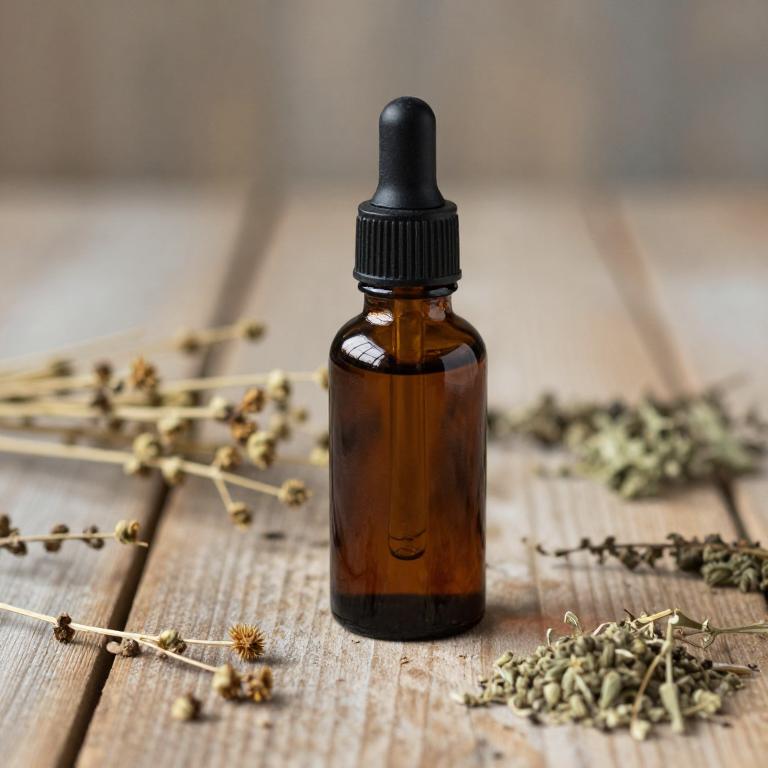
Cuminum cyminum, commonly known as cumin, has been traditionally used in herbal medicine for its digestive and anti-inflammatory properties.
Cumin herbal tinctures are often prepared by soaking the seeds in alcohol to extract their active compounds, which include essential oils and phytochemicals. These tinctures are believed to help alleviate upper abdominal pain by stimulating digestion, reducing gas, and easing spasms in the gastrointestinal tract. They are typically used as a complementary therapy under the guidance of a healthcare provider.
While cumin tinctures may offer some relief for mild digestive discomfort, they should not replace professional medical advice for persistent or severe upper abdominal pain.
6. Black cumin (Nigella sativa)
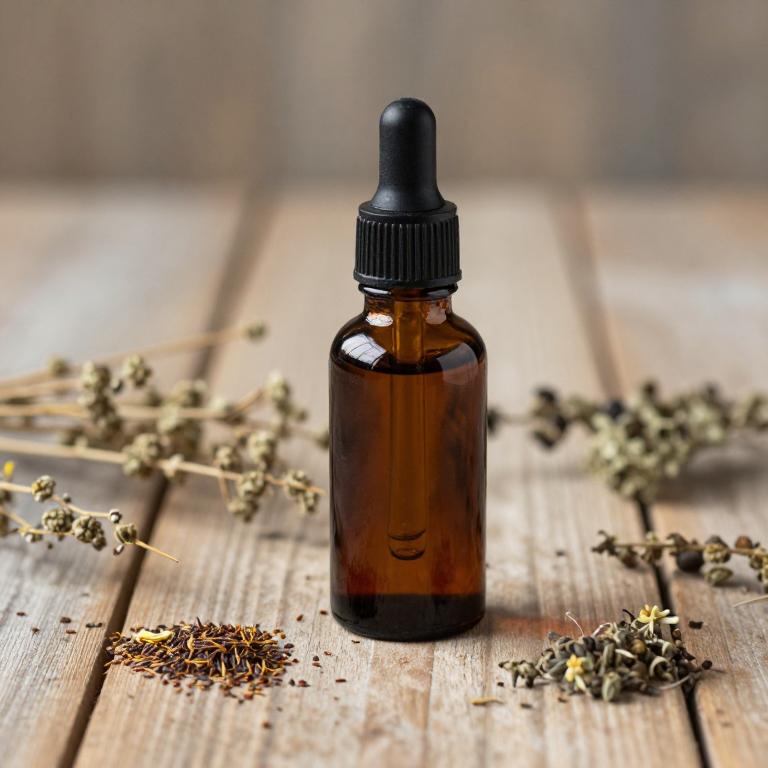
Nigella sativa, commonly known as black cumin, has been traditionally used in herbal medicine for its potential anti-inflammatory and analgesic properties.
Herbal tinctures made from Nigella sativa seeds are often prepared using alcohol to extract the essential oils and bioactive compounds, such as thymoquinone, which may contribute to their therapeutic effects. These tinctures are sometimes used to alleviate upper abdominal pain, possibly due to their ability to reduce inflammation and promote digestive health. However, while some anecdotal evidence supports their use, more clinical research is needed to confirm their efficacy and safety for this specific condition.
As with any herbal remedy, it is advisable to consult a healthcare professional before using Nigella sativa tinctures, especially for chronic or severe abdominal pain.
7. Black pepper (Piper nigrum)
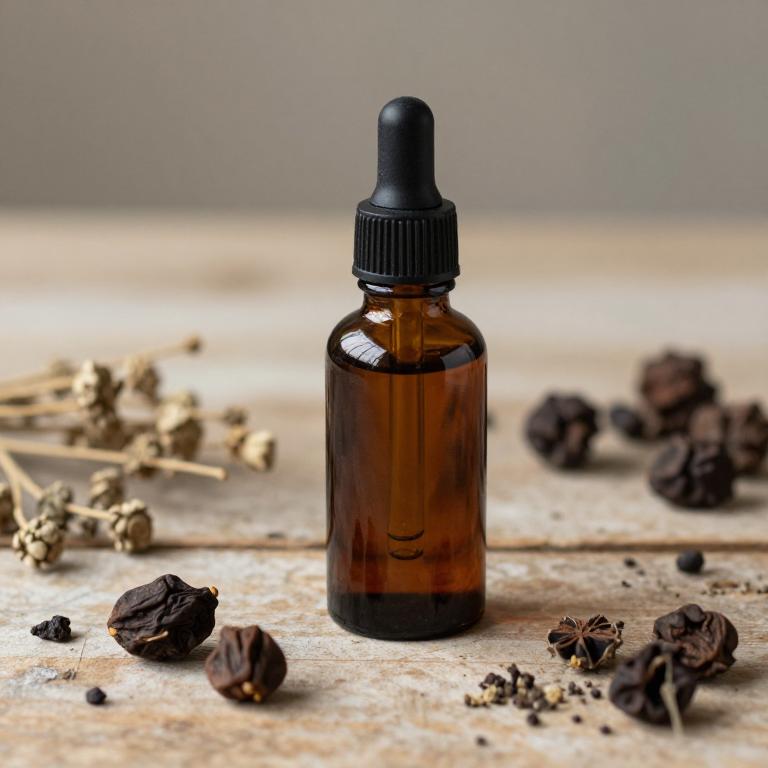
Piper nigrum, commonly known as black pepper, is a traditional herbal remedy that has been used for centuries in various cultures for its medicinal properties.
When prepared as a tincture, piper nigrum may offer potential relief for upper abdominal pain due to its anti-inflammatory and digestive stimulant effects. The active compound, piperine, is believed to enhance the absorption of other nutrients and may help alleviate gastrointestinal discomfort. However, it is important to consult a healthcare professional before using piper nigrum tinctures, as they may interact with certain medications or conditions.
While some anecdotal evidence supports its use, scientific research on its efficacy for specific types of upper abdominal pain remains limited.
8. Chamomile (Matricaria chamomilla)
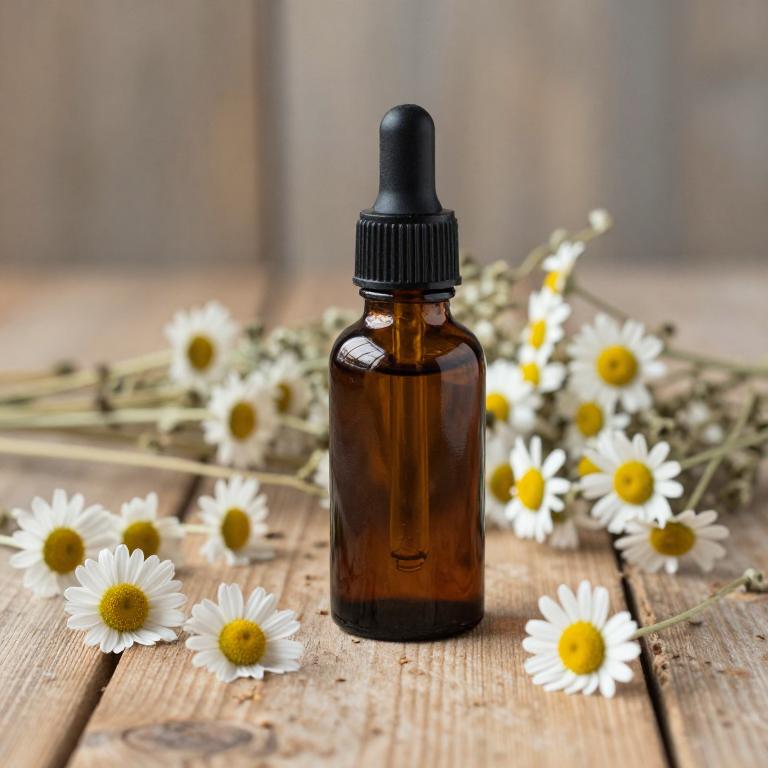
Matricaria chamomilla, commonly known as chamomile, is a widely used herb in herbal medicine for its calming and anti-inflammatory properties.
Chamomile tinctures are often prepared from the dried flowers of the plant and are valued for their ability to soothe digestive discomfort. When used for upper abdominal pain, these tinctures may help alleviate symptoms such as bloating, cramping, and mild gastritis due to their antispasmodic and carminative effects. The active compounds in chamomile, including flavonoids and essential oils, contribute to its therapeutic benefits.
However, it is important to consult a healthcare professional before using chamomile tinctures, especially for chronic or severe abdominal pain, to ensure safety and proper dosage.
9. Licorice (Glycyrrhiza glabra)

Glycyrrhiza glabra, commonly known as licorice root, has been traditionally used in herbal medicine for its potential therapeutic effects on the digestive system.
Glycyrrhiza glabra herbal tinctures are often prepared by soaking the root in alcohol to extract its active compounds, such as glycyrrhizin and flavonoids. These tinctures may help alleviate upper abdominal pain by reducing inflammation and soothing the lining of the stomach and intestines. The anti-inflammatory and antispasmodic properties of licorice root may also aid in easing symptoms associated with conditions like gastritis or peptic ulcers.
However, long-term use of licorice tinctures should be approached with caution due to potential side effects, including hypertension and electrolyte imbalances.
10. Caraway (Carum carvi)
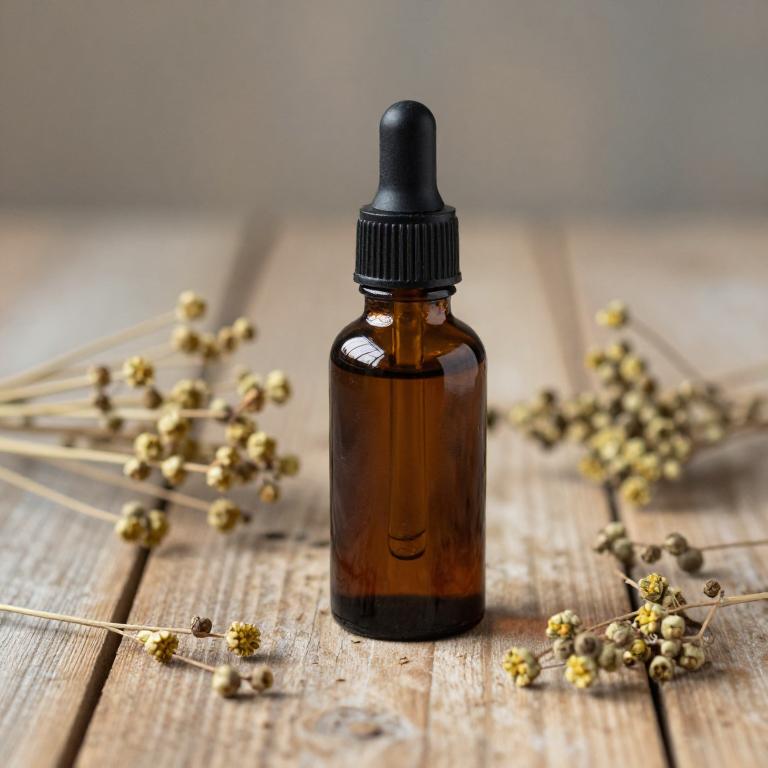
Carum carvi, commonly known as caraway, has been traditionally used in herbal medicine for its digestive and carminative properties.
Carum carvi herbal tinctures are prepared by soaking the dried seeds in alcohol to extract their active compounds, including volatile oils like limonene and apiol, which are believed to aid in relieving upper abdominal discomfort. These tinctures are often used to alleviate symptoms such as bloating, gas, and mild cramping associated with indigestion or gastrointestinal disturbances. The soothing effects of caraway may help relax the smooth muscles of the digestive tract, promoting ease of digestion and reducing discomfort.
However, it is important to consult a healthcare professional before using carum carvi tinctures, especially for persistent or severe upper abdominal pain, to rule out more serious underlying conditions.